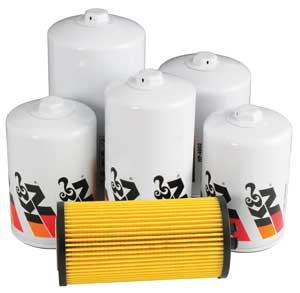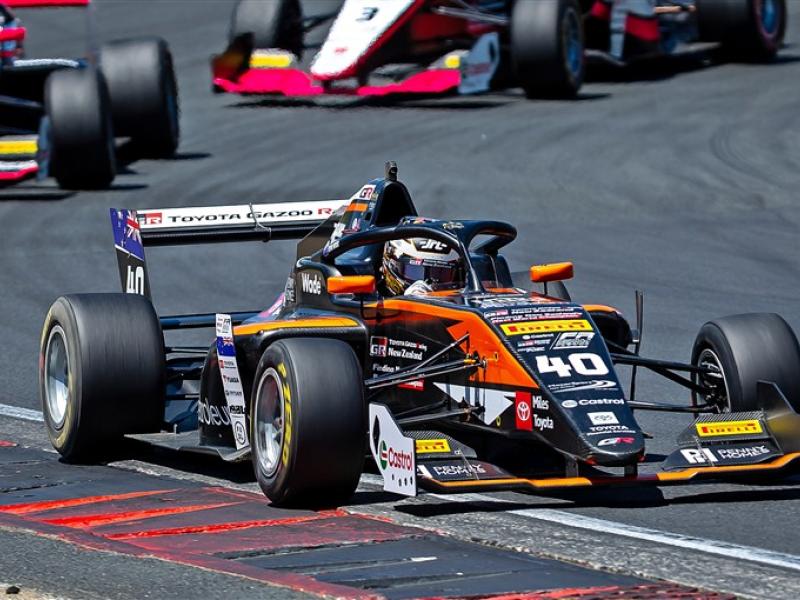| Oil, air, and fuel filters are a vehicle’s first line of defence to ensure optimum performance and good housekeeping for its hundreds of moving parts. This past winter many people relied on face masks to keep flu bugs from entering and compromising the performance of their bodies. Filters do the same work for a car’s engine and cabin year round. Spring heralds the start of the annual Big OE (outdoors experience), with thousands of Kiwis towing the boat and or caravan over often taxing terrain to get to camping grounds or baches. Rick Nutter, Ryco Filters sales manager for GUD (NZ), says as summer approaches workshops usually see an increase in generalised servicing activity. He says it is a good idea for technicians to encourage car owners to check the vehicle’s filters in addition to the basic lubrication service. “The primary function of any filter is to separate out and contain particles with little or no restriction of flow,” he says. He explains the level of filtration required to maintain and optimise vehicle and engine performance and maintenance standards are determined by each vehicle manufacturer and are referred to as the original equipment specification. Ryco’s business philosophy is to design and develop filters “...that will provide equivalent performance to that of genuine service parts in three key areas – efficiency, life, and flow.” In addition, Ryco designs and engineers its filters to meet the service requirements of the auto maker. “However, the condition and service life of filters depends on both the level of filter specification used and how and where you use the car...service interval is not the only indicator of when a filter needs to be serviced or replaced. If the filter is under specified, overworked or at the end of its life it cannot remove contaminants – for example there is nothing to tell the driver when the oil filter goes into bypass mode, which means the engine loses the benefits of filtering contaminants and the engine wear increases dramatically,” he says. Nutter says summer is traditionally a push season for intake air and cabin air filters, too. “Keeping the cabin air filter in good condition is particularly important for people who are prone to allergies, as it keeps dust and spores out of the cabin environment. Many drivers and in fact technicians neglect this filter. “Regularly inspecting, servicing, or replacing cabin air filters is a big opportunity for better customer service and enhanced income, one that Kiwi technicians have been slow to take up,” he says. He adds that recent research undertaken by Ryco for in vehicle testing under highway conditions shows that just by replacing an inadequate air intake filter motorists can save fuel consumption up to 10 percent. The company will be releasing its latest edition 2009-2011 Automobile Light Commercial catalogue this month. The 2009 – 2011 Heavy Duty catalogue, in response to market feedback now a separate publication, is due in early 2010. Nutter says while market research indicates the Ryco catalogue is the one most likely to be used in the market place, it also revealed mechanics had some additional information requirements. “Due to the complexity of the New Zealand car park correct identification of part numbers is extremely important for mechanics. We did a lot of work on this, and in the new release we have increased the number of listings with engine codes and updated the actual open and close dates of vehicle model runs. We included cabin air filters within the normal vehicle application listings to make it easier for mechanics,” he says. Mechanics also wanted improved readability. They can now find the information they want at a glance, rather than searching Ryco’s traditional two or more catalogue sections. And to ensure Ryco customers receive the full Ryco brand support across the country, the company recently appointed two new field staff, Stuart Taylor and Richard Hay. Adele Gardiner, operations manager, Pioneer Autoparts, says for many car enthusiasts optimum performance means extracting all the extra acceleration and horsepower possible from the engine. She says Pioneer Autoparts market the K&N Engineering range of oil and stock replacement drop in air intake filters to do just that. She explains the K&N Performance Gold Oil Filter was originally developed for race applications, but due to its easy removal and durability has become a favourite among general consumers. Most K&N canister type automotive and marine oil filters have a 25.4mm (1”) nut and most of the canister type motorcycle and ATV oil filters has a 17mm nut welded to the top of the canister. This means the canister can easily be wrenched off with a standard spanner when the service date falls due. The nut on the canister is pre drilled with a hole for a safety wire attachment, a requirement in racing applications. |
A K&N oil filter has a heavy duty construction with thicker canister walls for strength and durability, allowing it to withstand the higher oil pressures associated with racing. Its resin impregnated cellulose filtering media affords it high flow rates and maximum filtering surface for contaminant removal. According to Gardiner the high flow media is designed especially for use with, although not restricted to, modern synthetic and long life motor oils.
|






